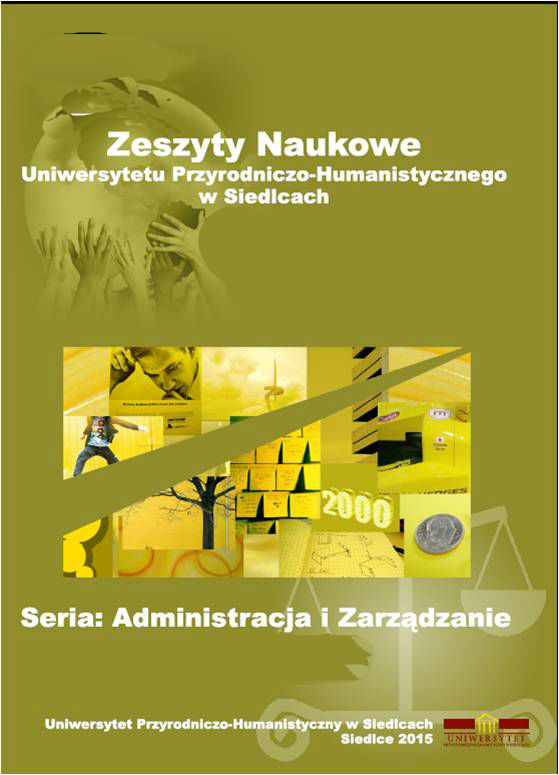Zarządzanie rozwojem społecznym i gospodarczym wiejskich obszarów przygranicznych(na przykładzie powiatu jaworowskiego)
Management of Social and Economic Development of Rural Border Areas (on the Example of Yavoriv District)
Author(s): Inna KulishSubject(s): Agriculture, Socio-Economic Research
Published by: Uniwersytet Przyrodniczo-Humanistyczny w Siedlcach
Keywords: Social economic development; Competitive advantage; Rural areas; Border areas
Summary/Abstract: Na przykładzie rejonu jaworowskiego obwodu lwowskiego rozpatrywane są cechy planowania rozwoju społeczno-gospodarczego obszarów wiejskich położonych w pobliżu granicy. Zidentyfikowano cechy pozytywne, które tworzą przewagi konkurencyjne obszarów wiejskich w rejonie, wśród nich dogodne położenie geograficzne, odpowiednio rozwinięta infrastruktura transportowa, unikatowe cechy naturalne, podkreśla się także główne wady hamujące rozwój, w szczególności dotyczy to konserwatyzmu w podejściu do percepcji istoty obszarów wiejskich w jej nowoczesnym sensie przyjętym w krajach Unii Europejskiej. Pokazano, w jaki sposób planowanie rozwoju w trakcie funkcjonowania sowieckiego systemu dowodzenia i administracji wpłynęło na stan wiejskich obszarów Jaworowa, szczególnie na aspekt ekologiczny. W trakcie rozważań nad rozwojem terytoriów proponuje się stosowanie pojęcia "innowacyjnego zrównoważonego rozwoju" (IZR), zidentyfikowano też jego główne elementy. Pod-kreślono konieczność korelacji wszystkich planów rozwoju lokalnego z już istniejącymi regionalnymi oraz krajowymi planami i programami. Wskazano na potrzebę wprowadzenia praktyki "Transition network" na obszarach wiejskich powiatu jaworowskiego i na obszarach wiejskich całego kraju. Zdecydowano, że dalsze badania w tym kierunku powinny koncentrować się na planowaniu rozwoju społeczno-gospodarczego odrębnych wspólnot terytorialnych. (abstrakt oryginalny)On the example of the Yavoriv district of the Lviv region, features of planning of social and economic development of the rural territory located near the border are considered. The positive features that form the competitive advantages of the rural areas of the region are highlighted, among them a convenient geographical location, a sufficiently developed transport infrastructure, unique natural features, as well as there are highlighted the main shortcomings that hinder development, in particular, it concerns conservatism in approaches to perceiving the es-sence of the rural area in its modern sense adopted in the countries of the European Union. It is shown how the development planning during the period of functioning of the Soviet command and administrative system affected the state of the rural territories of the Yavoriv district, especially on the ecological aspect. In the process of reviewing the development of the territories, it is proposed to use the term "innovative sustainable development" (ISD), its main components were identified. The necessity of correlation of all local development plans with already existing regional and national plans and programmes was emphasized. The need to introduce "Transition network" practice in rural areas of the Yavoriv district and in rural areas of the whole country was indicated. It is determined that further research in this direction should be focused on planning of socio-economic development of separate territorial communities. Keywords: socio-economic development, competitive advantages, rural areas, borderlands
Journal: Zeszyty Naukowe Uniwersytetu Przyrodniczo-Humanistycznego, seria Administracja i Zarządzanie
- Issue Year: 46/2018
- Issue No: 119
- Page Range: 19-26
- Page Count: 8
- Language: English, Belarusian

